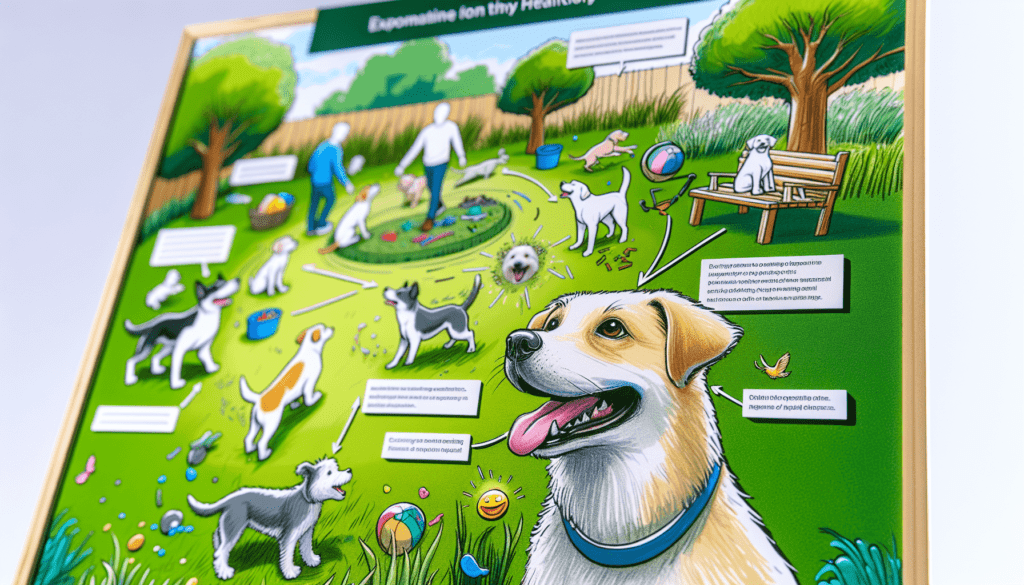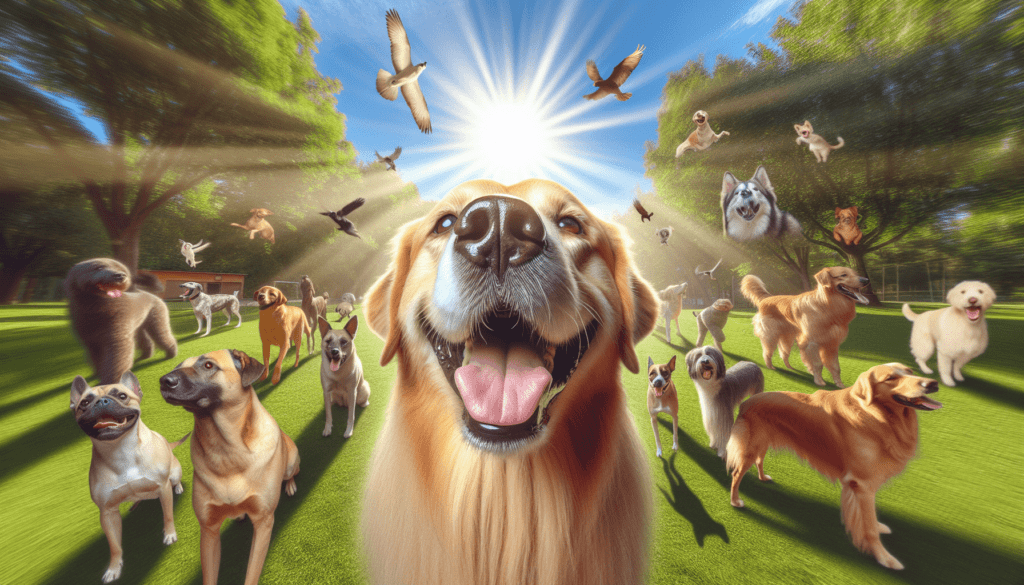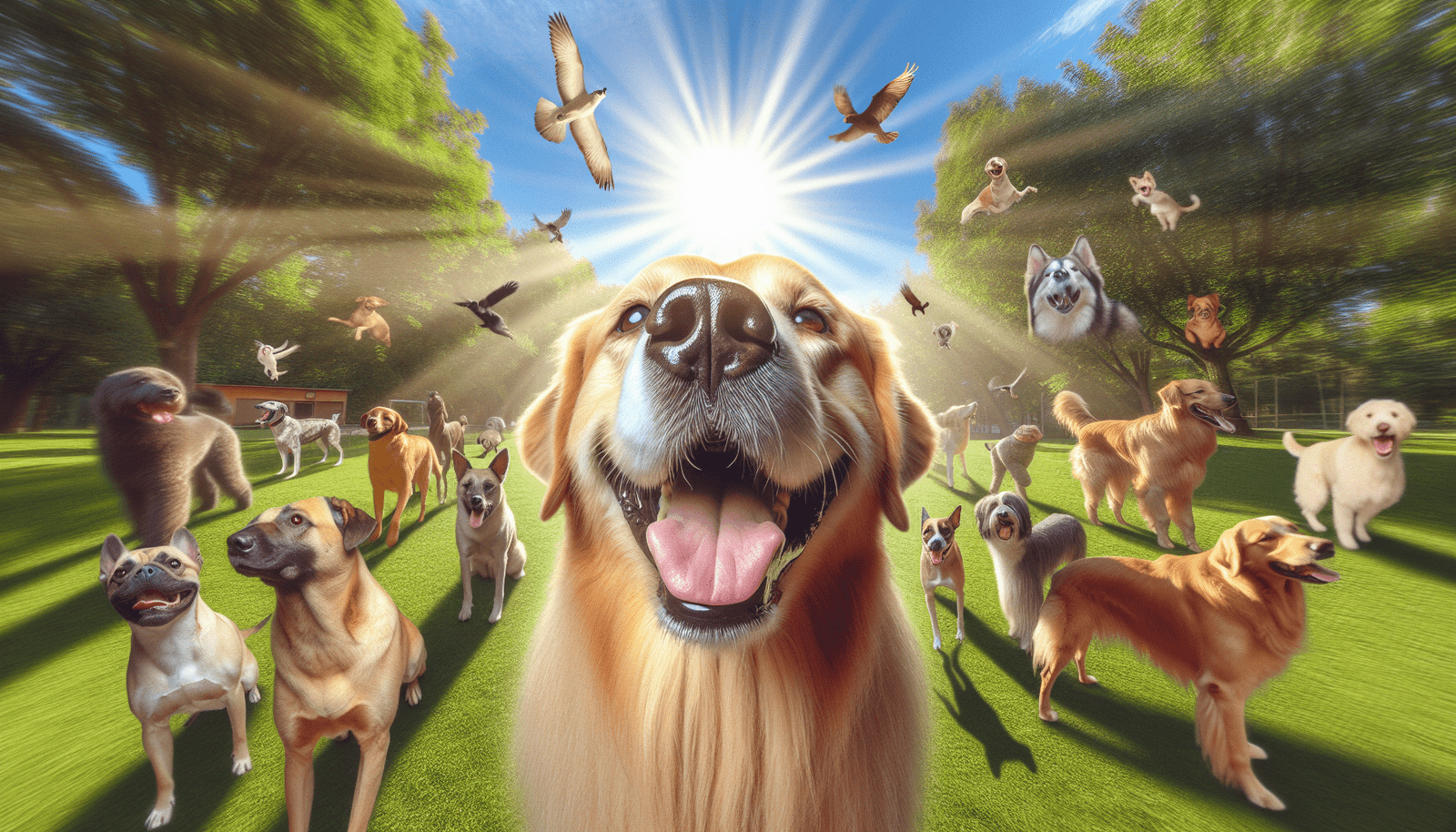If you’ve ever owned a dog, you know how important it is for them to feel comfortable and at ease in various situations. Just like humans, dogs can also experience anxiety, and socialization plays a crucial role in preventing it. By exposing dogs to a variety of people, animals, and environments from an early age, we help them develop coping skills and build confidence. In this article, we will explore the significant role that socialization plays in preventing anxiety in our beloved furry friends.
Introduction
Anxiety in dogs can be a challenging issue to address, but the good news is that prevention is possible with proper socialization. Socialization is an essential aspect of a dog’s development and plays a crucial role in preventing anxiety. By exposing them to various experiences, environments, and interactions, we can build their confidence and resilience, reduce fear and anxiety triggers, and prevent behavioral issues. In this article, we will explore the significance of socialization in preventing anxiety in dogs and provide practical tips for ensuring your furry friend receives the socialization they need.
Understanding Socialization
Socialization refers to the process of exposing dogs to different people, animals, environments, and situations to help them develop social skills and become well-adjusted companions. It is essential to start socialization at a young age to ensure that dogs grow up to be confident, happy, and comfortable in various settings. Early socialization lays the foundation for their future interactions and enhances their ability to cope with new experiences.
Key components of socialization include positive experiences, building confidence and resilience, reducing fear and anxiety triggers, and preventing behavioral issues. By focusing on these aspects, we can create a well-rounded dog that is less likely to develop anxiety or exhibit problem behaviors.

Early Socialization
During the early stages of a dog’s life, they go through a critical period for socialization. This period typically occurs between 3 and 14 weeks of age and is a crucial developmental phase. It is during this time that puppies are most receptive to learning, making it an ideal time to introduce them to a wide range of stimuli, experiences, and interactions.
Early socialization offers numerous benefits for dogs. It helps them develop the necessary foundations for healthy social behavior, improves their ability to adapt to new environments, and minimizes the chances of developing anxiety-related issues later in life. Puppies that receive proper socialization during this critical window are more likely to grow up into confident, well-adjusted adult dogs.
Positive Experiences
Creating positive associations is a fundamental aspect of socialization and plays a key role in preventing anxiety. By associating enjoyable experiences with new people, places, and situations, we can help dogs develop positive associations and reduce the likelihood of them developing anxious or fearful responses.
When socializing your dog, ensure that every encounter is positive and rewarding. For example, when introducing them to new people, provide treats and praise to create positive associations. Similarly, when exposing them to various environments, allow them to explore at their own pace and reward them for their bravery. These positive experiences build a strong foundation of confidence and trust, which is essential for preventing anxiety in dogs.

Building Confidence and Resilience
In addition to creating positive associations, it is crucial to actively build your dog’s confidence and resilience. Encouraging exploration and problem-solving is an effective way to accomplish this. By providing your dog with opportunities to investigate their surroundings and solve simple puzzles, you can help them develop problem-solving skills and strengthen their confidence.
Gradual exposure to new stimuli is also an important aspect of building confidence. Start with low-stress environments and gradually increase the level of exposure as your dog becomes more comfortable. This gradual approach allows dogs to develop resilience and adaptability, making them less prone to anxiety-inducing situations.
Reducing Fear and Anxiety Triggers
To prevent anxiety in dogs, it is important to identify and address potential fear and anxiety triggers. Desensitization and counterconditioning are effective techniques that can be used to help dogs overcome their fears and anxieties.
Desensitization involves gradually exposing your dog to the trigger at a low intensity and gradually increasing their exposure over time. This gradual exposure allows them to become more comfortable and less reactive to the trigger. Counterconditioning involves associating the trigger with positive experiences, such as treats or play, to change their emotional response from fear or anxiety to a positive one.
It is also crucial to identify and avoid stressful situations whenever possible. By being mindful of your dog’s triggers and avoiding them, you can significantly reduce their overall anxiety levels and create a safer and more comfortable environment for them.
Preventing Behavioral Issues
One of the significant benefits of socialization is that it helps prevent behavioral issues, including fear aggression. Fear aggression can stem from anxiety and is often a response to stressful or fearful situations. By properly socializing your dog, you can decrease the likelihood of them developing fear aggression and other problematic behaviors.
Proper social behavior is also promoted through socialization. Dogs that are well-socialized are more likely to exhibit appropriate greetings, play, and interaction with other dogs and people. They learn how to communicate effectively and understand boundaries, reducing the chances of conflicts or negative interactions.
Importance of Socializing with People
Socializing with people is a crucial aspect of a dog’s socialization process. It helps them develop trust and confidence in humans, which is essential for their overall well-being. Positive interaction techniques can be used to foster a strong bond between your dog and people.
When socializing with people, always ensure that the encounters are positive and stress-free. Start by introducing your dog to familiar individuals who can offer gentle and calm interactions. Gradually expose them to a variety of people, including different ages, genders, and appearances. This exposure helps dogs become more comfortable and confident around people, minimizing the chances of developing anxiety or fear.
Socializing with Other Dogs
Socializing with other dogs is equally important for a dog’s socialization. It allows them to learn important social skills and appropriate behavior around their fellow canines. Understanding dog body language is crucial when socializing with other dogs, as it helps ensure safe and positive interactions.
When introducing your dog to other dogs, choose appropriate playmates that have a similar energy level and play style. Monitor their interactions closely to ensure that both dogs are comfortable and engaged. If any signs of fear or aggression are observed, calmly separate the dogs and provide a more controlled and supervised environment. Proper socialization with other dogs helps prevent anxiety and ensures that your dog can enjoy positive and healthy social interactions throughout their life.
Seeking Professional Help
If you are uncertain about how to properly socialize your dog or if your dog is exhibiting signs of anxiety despite your efforts, it may be beneficial to seek professional help. Trainers or behaviorists who specialize in dog behavior can provide additional support and guidance.
Working with a professional allows you to develop a tailored socialization plan based on your dog’s unique needs and circumstances. They can provide expert advice, behavioral modification techniques, and ongoing support to ensure that your dog receives the proper socialization they require.
In conclusion, socialization plays a vital role in preventing anxiety in dogs. By providing early socialization, creating positive experiences, building confidence, and reducing fear triggers, we can help our furry friends grow into well-adjusted and anxiety-free companions. Whether it is interacting with people or socializing with other dogs, a comprehensive and positive socialization plan is necessary for a dog’s overall well-being. Remember, seeking professional help is always an option when additional support and guidance are needed. With proper socialization, we can give our dogs the best chance at a happy, confident, and anxiety-free life.

